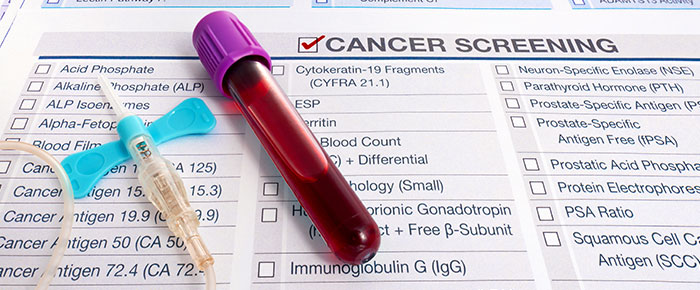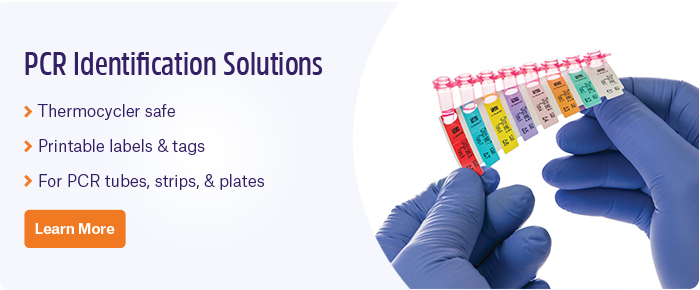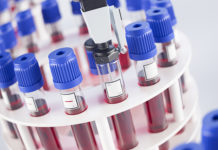
Treating cancer with immunotherapy holds great promise. However, this course of treatment has been shown to only work in a subset of cancer patients. In order to predict which patients will respond to cancer immunotherapy treatments and track their progress, scientists have searched and discovered various predictive and prognostic immuno-oncology biomarkers.
What are Biomarkers
A biomarker is a measurable biological factor that has been shown to provide information on a particular aspect of human health. In the context of cancer immunotherapy, biomarkers or tumor markers provide insight into the cancer’s genetic makeup, its behavior, and its interactions with the immune system. Each type of cancer will present a unique biomarker pattern, with specific biomarkers affecting how patients react to treatments. As such, doctors can then use this biomarker data to determine the approach most likely to benefit a particular person.
Biomarkers can be subdivided into two main categories: pre-treatment biomarkers and biomarkers followed during and after treatment. These different types of biomarkers can not only help guide the decision on the best treatment option for a specific individual but also help assess its effectiveness and the well-being of the patient. Biomarkers are further classed according to the information they provide.
PRE-TREATMENT BIOMARKERS
- Diagnostic: A diagnostic cancer marker aids in diagnosing the type of cancer present and may also serve in determining disease progression.
- Prognostic: A prognostic cancer biomarker provides information on a patient’s overall cancer outcome, regardless of therapy. This can include the likelihood of a future clinical event, disease recurrence, and progression. Prognostic markers are measured using a defined baseline that may include a background treatment.
- Predictive: Predictive biomarkers measure the likelihood of a positive response to a given therapy. This allows clinicians to identify patients that are most likely to benefit from the prescribed treatment, helping to tailor therapies and minimize treating patients with harmful or ineffective therapies. Predictive markers can also help identify if any side effects of the treatment are likely to occur.
BIOMARKERS DURING AND AFTER TREATMENT
This requires using monitoring biomarkers that are assessed repeatedly over time. They can be used to evaluate disease progression, as well as the occurrence of new disease side effects, worsening of previous symptoms, or a change in disease severity.
- Short-Term Monitoring: This is primarily used during the course of the treatment to establish if it is working and if any unwanted side effects have arisen.
- Extended Monitoring: Extended monitoring is typically concerned with post-treatment outcomes. This can include if the cancer is still considered stable or in remission.
Cancer Immunotherapy
Cancer immunotherapy, also known as immuno-oncology, is a form of cancer treatment that uses the body’s own immune system to prevent, control, and eliminate cancer. Immunotherapy treatments can be used to educate the immune system to recognize and attack specific cancer cells, boost immune cells to help them eliminate the invading cancer, or to provide the body with additional components to enhance the immune response.
As such, cancer immunotherapy comes in various forms, including targeted antibodies, cancer vaccines, adoptive cell transfer, tumor-infecting viruses, and checkpoint inhibitors. Some treatments may also use genetic engineering to enhance immune cells’ cancer-fighting capabilities and may be referred to as gene therapies. These treatments can and are routinely used in combination with surgery, chemotherapy, radiation, or other targeted therapies to improve their effectiveness.
However, these therapies do not work for every patient and can be associated with potentially severe but manageable side effects. This is why cancer biomarkers that can predict the response to a given therapy are so valuable, as they can not only ensure patients receive the proper treatment but also prevent them from receiving a harmful course of treatment, which would be ineffective and waste precious time.
Precision medicine and immunotherapy hold the potential to produce more personalized and effective cancer treatments than are currently available while also producing fewer side effects. Biomarker testing is essential to this transition to precision medicine by tailoring the diagnosis and treatment according to genes, proteins, and other substances in the patient’s body. For cancer treatment, this means using biomarkers and other tests to select therapies that are most likely to work with the fewest side effects. Though much progress has been made in the field of personalized medicine, it is not yet part of routine care for most cancer patients.
Biomarkers in the Future
As every cancer presents differently, there is unlikely to be a single, perfect biomarker that will apply in all cases. Certain biomarkers may only be relevant in specific tumor types or for monitoring particular immunotherapies, which will have to be determined on a case-by-case basis. Ideally, a panel of potential biomarkers can be developed that doctors can consult, providing comprehensive and actionable insight into a patient’s cancer diagnosis, and allowing the physician to devise a treatment plan best suited to help them.
Discovering and validating new biomarkers remains an extremely active area of investigation. This is especially true regarding markers of tumor-immune interaction and the initial steps involved in launching an adaptive immune response against tumor cells. As such, new advances in biomarker development will likely be tied to advances in technology that enable researchers to investigate the tumor-immune relationship further. Clinical trials will likely also play a crucial role as they provide valuable data on the effectiveness of immunotherapy treatments.
Several biomarkers have already been incorporated into clinical practice to varying degrees. While their value has only just recently been recognized, cancer biomarkers represent a valuable tool in our continued fight against cancer.
LabTAG by GA International is a leading manufacturer of high-performance specialty labels and a supplier of identification solutions used in research and medical labs as well as healthcare institutions.



